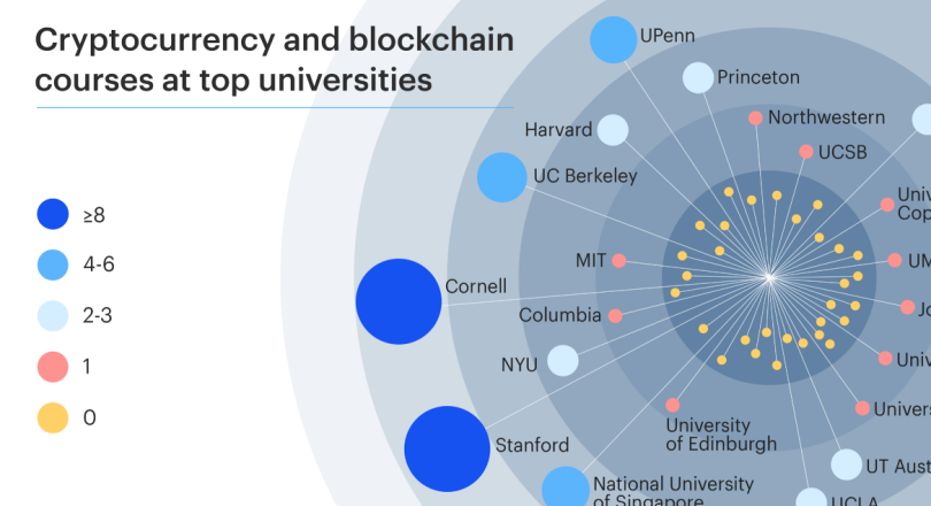Cryptocurrency Education Is On the Rise at Colleges and Universities

In the past few years, Blockchain and cryptocurrency have gone from fringe technologies to mainstream conversation topics. Beyond the fluctuating price or Bitcoin or Ether, a more concrete indicator of legitimacy is how seriously the subject is taken at higher-education institutions.
Popular cryptocurrency exchange Coinbase recently partnered with data startup Qriously on a report about the rise of crypto in higher education. The companies surveyed 675 US students ages 16 and older, reviewed courses at 50 international universities, and interviewed professors and students. Coinbase also surveyed 6,011 respondents in the general US population as a comparison.
The report found that 42 percent of the world's top 50 universities now offer at least one course on cryptocurrency or blockchain in various departments, and 22 percent offer more than one. Stanford University offers the most courses with 10, followed by Cornell University with nine, the University of Pennsylvania with six, the National University of Singapore with five, and UC Berkeley with four courses. Harvard, Princeton, and NYU were also in the top 10.
Blockchain and cryptocurrency courses are most prominent in the US. Only 27 percent of international universities offer a blockchain or cryptocurrency class.
In terms of subject matter, the vast majority (81 percent) of current blockchain and cryptocurrency classes are math- or science-related. A smaller fraction (15 percent) of classes are on business and finance topics, while only 4 percent of classes are on the social sciences. The report lists examples of classes, such as a blockchain business course at Johns Hopkins, classes at Cornell called "Anthropology of Money," and "Introduction to Blockchains, Cryptocurrencies, and Smart Contracts," and a class at UC Berkeley entitled "Blockchain, Cryptoeconomics, and the Future of Technology, Business, and Law."
Coinbase and Qriously also found that students across a wide range of majors are interested in crypto and blockchain courses or have already taken one, and some even own cryptocurrencies. The survey found that 9 percent of students have already taken a blockchain or cryptocurrency course, and 26 percent want to take one.
Breaking those results down by department, 47 percent of social science majors are interested in learning about cryptocurrency, but only 5 percent have actually taken a course. Compare that to computer science and engineering majors surveyed, where only 34 percent are interested but 17 percent have already taken a course. The survey also found that 15 percent of economics and math majors and 11 percent of business majors have taken a course.
Only 18 percent of students surveyed actually owned cryptocurrency. But to put that in perspective, that's double the 9 percent of crypto owners in the general US population, according to Coinbase's survey.
This article originally appeared on PCMag.com.



















